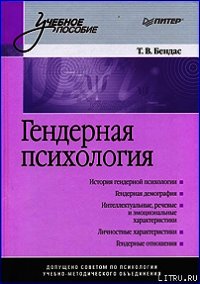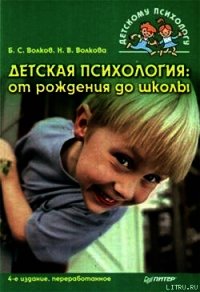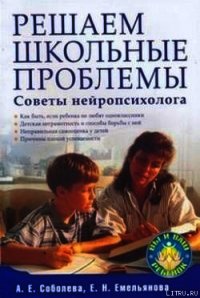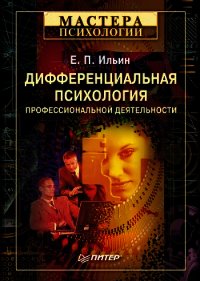Психология творчества, креативности, одаренности .. - Ильин Евгений Павлович (книги без регистрации TXT) 📗
Gifford S., Murawski B., Brazelton B., Berry T., Young G. Differences in individual development within a pair of identical twins // International Journal of Psycho-Analysis. 1966. V. 47. № 2–3.
Goertzel M. G., Goertzel V., Goertzel T. G. Three Hundred Eminent Personalities, San Francisco: Jossey-Bass. 1978.
Goldberg P. The intuitive edge. Understanding and developing intuition. Los Angeles. Jeremy P. Tarcher
Inc. 1983.
Goldberg P. The intuitive experience // W. H. Agor (ed.). Intuition in organizations: Leading and
managing productively. Newbury Park, CA. Sage. 1989. P. 173–194. Goorden W.J.J. Synectics. The Development of Creative Capacity. NY. 1961. Gordon W. J. Synestetics: The Development of Creative Capacity. Harper. 1961.
Gough H. G. A creative personality scale for the Adjective Check List // Journal of personality band Social
Psychology. 1979. V. 37. P. 1398–1405. Gough H. G., Woodwoth D. G. Stylistic Variations among Professional Research Scientist // Journal of
Psychology. 1960.
Gruber H. On the hypothesized relation between giftedness and creativity // D. H. Feldman (ed.). New
directions for child development: № 17. Developmental approaches to giftedness and creativity. San
Francisco. Jossey-Bass. 1982. Gruber H. The self-construction of the extraordinary // K. Sternberg et al.(eds.). Conceptions of
giftednes. Cambridge. Cambridge University Press. 1986. P. 247–263. Gruber H., Devis S. Inching our way up Mount Olympus: the evolving-systems approach to creative
thinking // R. Sternberg, T. Tardif (eds.). The nature of creativity. Cambridge. Cambridge University
Press. 1988. P. 243–270.
Gruszka A., Necka E. Priming and Accertance of Close and Remote Associations by Creative and Less
Creative People // Creative Research Journal. 2002. V. 14. № 2. P. 193–205. Guilford J. P. Creativity // American Psychologist. 1950. V. 5. P. 444–454. Guilford Y. P. The nature of human intelligence. NY. Mc-Graw Hill. 1967. Guilford Y. P. Measurement of creativity // Exploration in creativity. NY. 1967. P. 281–287. Guilford Y. P. Trait of Creativity // P. E. Vernon (ed.). Creativity. 1972.
Guilford Y. P., Christensen P. R. The one-may relation between creative potential and IQ // Journal of
creative behavior. Buffalo. 1973. V. 7. Gutman H. The biological roots of creativity // Exploration in creativity. NY. 1967. Haddon F., Lytton H. Teaching approach and divergent thinking abilities // British Journal of Educational
Psychology. 1968. V. 138.
Halpern D. F. Sex differences in cognitive abilities. Mahwah. NY. L., Lawrence Erlbaum Ass. Publ. 2000.
Harpatz J. Asymmetry of hemispheric function and creativity: An empirical examination // Journal
Creative Behavior. 1990. V. 24. № 3. P. 161. Harrington D. M., Block J. H., Block J. Testing aspects of Carl Rodger's theory of creative environments in
young adolescents // Journal of Personality and Social Psychology. 1987. V. 52. P. 851–856. Heller K. A. Evaluation of programs for the gifted // M. W. Katzko, F. J. Monsk (eds.). Nurturing Talent,
individual needs and social ability. The 4-th conference of ECHA. Assen, Van Gorcum. 1995. P. 264–268. Heller K. A. Psychologische Probleme der Hochbegabungsforschung // Zeitschrift fur Entwicklungspsychologie
and Padagogische Psychologie. 1986. Bd. XVIII. Heft 4. S. 335–361. HellerK. A., GeislerH.J. Kognitiver Fahigkeits. Test fur 1. Bis 3. Klassen (KFT 1–3). Weinheim: Beltz. 1983. Henley R. Distinguishing insight from intuition // Journal of Consciousness Studies. 1999. V. 6. № 2–3.
P. 287–290.
Hennessey B. A., Amabile T. M. The conditions of creativity // R.J.Sternberg (ed.). The nature of creativity:
Contemporary psychological perspectives. Cambridge. England. Cambridge University Press. 1988. Hes E. Attitude and puple size // Scientific American. 1965. P. 212.
Hilgard E. R., Edgren R. D., Irvine R. P. Errors in transfer following learning with understanding: further studies with Katona's cardtrick experiments // J. exper. Psychol. 1954. V. 47. P. 457–464.
Hill O. W. Intuition: Inferential heuristic or epistemic mode? // Imagin. Cognition and Person. 19871988. V. 79. № 2. P. 137–154.
Hlavsa J. Pojmova struktura tvurciho intelektu // Cheskoslovenska psychologie. 1972. V. 16. № 2.
Hogarth R. M. Educating intuition. Chicago, IL. University of Chicago Press. 2001.
Horny K. Our inner conflicts. NY. 1966.
Howard-Jones P. A., Myrray S. Ideational Productivity, Focus of Attention and Context // CreativityResearch
Journal. 2003. V. 15. № 2–3. P. 153–166. Howe M. J. A. What can we learn from the lives of genuises? // J. Freeman, P. Span, H. Wagner (eds.).
Actualizing talent: a lifelong challenge. Cassell. 1995. Hull C. L. Hypnosis and Suggestibility an Experimenal Approach. NY. Appleton – Century – Crofts. 1933. Isen A. M. Positive affect and decision making // M. Lewis, J. M. Haviland (eds.). Handbook of emotions.
NY. Guilford. 1993. P. 261–277. Isen A. M. On the relstionship between affact abd creative problem solving // S. Russ (ed.). Affect,
creative experience and psychological adjustmen. Philadelphia: Taylor and Francis. 1999. P. 3–17. Isen A. M. Positive affect as a sourse of human strength // L. G. Aspinwall, U. M. Staudinger (eds.).
A psychology of human strengths: Fundamental questions and future directions for a positive
psychology. Washington, DC. American Psychological Association. 2003. P. 179–195. Isen A. M., Daubman K. A. The influence of affect on categorization // Journal of Personality and Social
Psychology. 1984. V. 47. P. 1206–1217. Isen A. M., Daubman K. A., Nowicki G. P. Positive affect facilitates creative problem solving // Journal of
Personality and Social Psycholoogy. 1987. V. 52. P. 1122–1131. Isen A. M., Johnson M. M., Mertz E., Robinson G. F. The influence of positive affect on the unusualness of
word associations // Journal of Personality and Social Psychology. 1985. V. 48. P. 1413–1426. Jacobs J. E, Weisz V. Gender stereotypes: Implications for gifted education // Roeper Review. 1994. V. 16.
№ 3. P. 152–155. Jamison K. Touched with Fire. NY. Free Press. 1994.
Jarvick I. R., Chadwicki S. B. Schizophrenia and survival // M. Hummer, K. Salzinger, S. Sutton (eds.).
Psychopathology. NY. Wiley. 1973.
Jekobson E. The Electrophysiology of Mental Activities // American Journal of Psychology. 1932. V. 44. Jones T. P. Creative learning in perspective. London. 1972.
Johnson W. L., Johnson A. M. A third-order component analysis of the Myers-Briggs Type Indicator //
Educational and Psychological Measurement. 1998. V. 59. № 5. P. 820–832.
Jonsson P., Carlsson I. Androgyny and creativity: A study of relationship between a balanced sexrole and creative functioning // Scand. Journal Psychology. 2000. V. 41. P. 269–274.
Johnston W. L., Daumer C. R. Intuitive development: Communication in the nineties // Publish. Personal Management. 1993. V. 22. № 2. P. 257–269.
Karlson Y. L. Inheritance of creative intelligence. Chicago. 1978. P. 138.
Kasof J. Creativity and breadth of attention // Creativity Research Journal. 1997. V. 10. № 4. P. 303–315. Kaufmann F. The 1964–1968 Presidential Scholars: A follow-up study // Exceptional Children. 1981.
V. 48. № 2.
Kerr B. A. Smart girls, gifted women: Special guidance concerns // Roeper Review. 1985. V. 8. P. 30–33. Kihlstrom J. F., Shames V. A., DorfmanJ. Intimations of memory and thought // L. M. Reder (ed.). Implicit
memory and metacognition. Mahwah. NY. Erlbaum. 1996. P. 1–23. Kirton M. J. Adaptors and Innovators. London. Routledge. 1994.
Kleemeier N. W. Intellectual change in the senium // Proc. of the social statistics. Section of the Americ.
Statist. Associative. NY. 1962. P. 290–295. Koestler A. The sleepwalkers. London. Hutchinson. 1959. Koestler A. The act of creation. London. Hutchinson. 1964.




